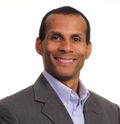With rising healthcare costs and the subsequent push to return patients to health sooner, a team care model that includes an appropriately-qualified exercise professional can be part of an effective patient management strategy. Taking a multidisciplinary approach to patient care isn’t new; however, expanding that team to include additional types of professionals is becoming more accepted.
The goal of any healthcare professional is to increase patient satisfaction, boost quality of life and improve health outcomes. So it makes sense to ensure that well-qualified exercise professionals be a part of the team working to help patients adopt a more active lifestyle. This type of robust team has the potential to contribute to positive patient outcomes as well as help support a reduction in long-term healthcare costs.
Well-qualified exercise professionals have specialized knowledge and training that allow them to deliver individualized programs to help people adopt a sustainable, healthy lifestyle. Historically that has often led to the misconception that lifestyle change must take place within the confines of a gym or fitness facility. While this is a great option for many individuals looking to make a lifestyle change, this environment isn’t feasible for every individual. Not everyone has access to a fitness facility, they may not be able to afford membership fees or a structured exercise environment may not suit their needs.
An exercise professional’s role is to work alongside an individual to help them find ways of being physically active that are meaningful to them. Working from that foundation, the exercise professional can design a unique movement experience. If that experience includes a structured program, then it’s the exercise professional’s responsibility to design a tailored program that is safe and effective. If the approach includes strategies to increase activity throughout a workday, then it is their responsibility to show the client that simple changes like taking the stairs, going for walks during lunch or engaging in cubicle calisthenics can make a big difference.
Because exercise professionals understand the value of nurturing successful client relationships through trust and communication, they are uniquely positioned to help create sustainable, healthy change in people’s lives—something more multidisciplinary healthcare teams could benefit from.
This would not only allow other members of the team to focus on their core responsibilities; but it would also allow the entire team to share the responsibility and coordination of the patient’s overall health and well-being.
Learn more about how ACE advocates for exercise professionals in the healthcare system.
 by
by 













